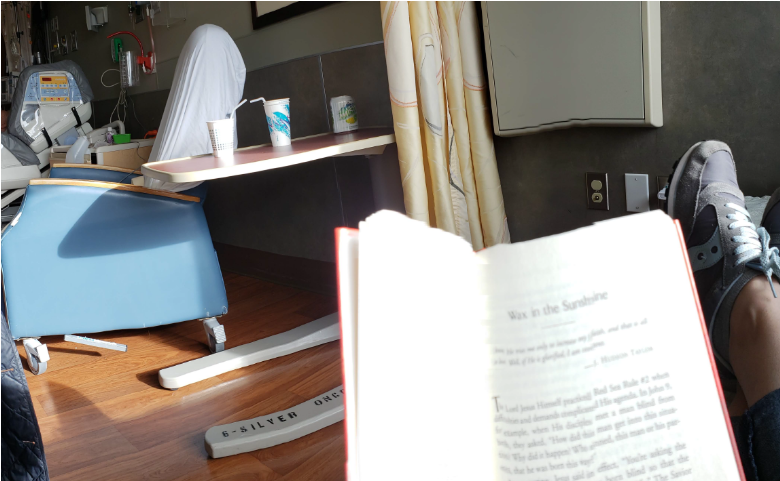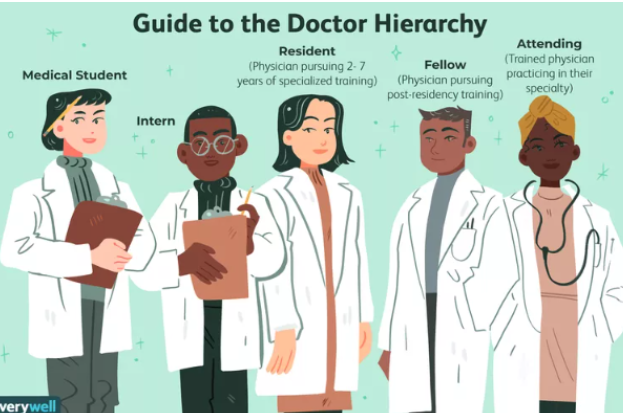My advice as a medical advocate

The man who seemed to be in charge (since he was the one who had just given detailed and important directives to the medical staff around him regarding medicine changes and a plan of care for our 10 day old baby) finally paused. He turned to me saying, “Do you have any questions?” “Yes,” I said, “WHO are you?”
There are those who choose to be a medical advocate as a profession. However, most people who find themselves in the role are thrown into it, frequently without any notice. That was my situation. After 21 years of advocating on a weekly (sometimes on a minute-by-minute) basis for my son (and father at times), I’ve found several strategies to be exceedingly helpful.
Five (hard-earned) strategies for advocating well
1.Find out names and titles
Ask for the full names and the tiles of the medical professionals with whom you are interacting. Interrupt them if you need to, ask them to turn their name badges over and if their title/specialty isn’t stated ask them what it is. If it’s unclear to you, clarify what their exact role is in the patient’s care.
Why? There is a hierarchy in a hospital setting and newer, less experienced doctors (like the Residents) can toss out possible outcomes, procedures, approaches and suggested solutions as freely as an enthusiastic flower girl tosses rose petals around. The result can be alarming and confusing, but if you know you are talking to a Resident you can take it all with a grain of salt. If you are talking to the Attending you’ll know to put more weight on their message. (Note: I am not intending to be disrespectful to the Residents and am infinitely grateful for everyone who chooses a medical profession.)

2. Keep notes in a portable binder or notebook
When used consistently both at regular appointments and/or in a hospital setting, this will be an incredible asset in your role as an advocate. It’s where you’ll write down the names and titles/specialties of the doctors with whom you’ve met and the key information provided. Note the date and if it was “in-patient” (in the hospital) so that when you look back it’s clear where the care was taking place. Also, write down your questions beforehand (you really won’t remember them if you don’t) and confirm they’ve been answered before the appointment is over, even if it means asking the doctor/nurse to wait while you do a second review of your questions and notes. (The Ways & Wane GoKit is perfect for this!)
Why?
Especially under stress, it’s nearly impossible to keep track of the myriad of details provided in a care setting. If asked by other family members for updates and details you not only have the information captured in writing, but you can take a picture of it and text that as an update. If you are playing tag team with another advocate (like your spouse or sibling), a shared notebook is a great way to make sure information is documented and communicated. (Permission from the patient should be granted before sharing their private medical information like in a text out to a group.)
3. Don’t worry about being the “good guy”
It’s not uncommon to be intimidated by doctors and other medical professionals, but remember that your role is to advocate really well for someone else, not to win a prize for “most congenial”. Don’t be rude, but know that you have the right to insist on second opinions, additional answers, explanations in plain terms or other care needs that are in the best interest of the one for whom you are advocating. At the end of the day, remember that you and the patient are the customers.
Why?
It’s very hard to do a great job at being a strong advocate when you are worried about aspects of the interactions that don’t have to do with getting the information you need and making sure the patient gets the best care possible. You have a job to do. Focus on that in order to show up as the advocate you hope someone would be for you.
4. Ban time in the land of “what ifs”
Make a purposeful decision not to put mental and emotional energy into the 25+ “what if” scenarios that you are tempted to entertain, especially if you are googling information. You do not actually show up more prepared for the horrible thing if you practice it in your mind. I believe it’s like practicing getting hit by a car so that if you get hit by a car it won’t hurt. There will likely be enough difficult things that you must face for absolute certainty, why use up your “perfectly good worry” in the land of “what ifs”?
Why?
It’s truly helpful for your mental health to focus on what is actually ahead instead of what might happen, especially since we can be exceedingly good at coming up with the most terrifying version possible. As an advocate, you only have so much energy. Use it purposefully.
5. Gather whatever tribe you can
Especially in the middle of an intense season of being a medical advocate, ask for help. Ask for practical help (can you bring me lunch or pick up X from Walgreens?) and emotional support (will you text me a cute picture or kind thought?). Ask regularly and ask people who you think may say no. You cannot control what their response is, but you can ask and in doing so you may just invite someone into something that will bless them too.
Why?
Once you come out of the intensity of the season, there won’t be a prize for the most worn out or emotionally ravaged. We all need community and the reminder that we are loved and cared for too. It’s a very good thing not to do the hardest season by yourself. This is one of the reasons I truly love our mission and work at Ways & Wane – we get to join the tribes of those who are doing their best to advocate really well.
Whether you are advocating or a child or an older adult, you’ll likely show up really well sometimes and other times you’ll scrape yourself up and give what little you can. Either way, you are showing up and that’s amazing. Be gentle with yourself too.


